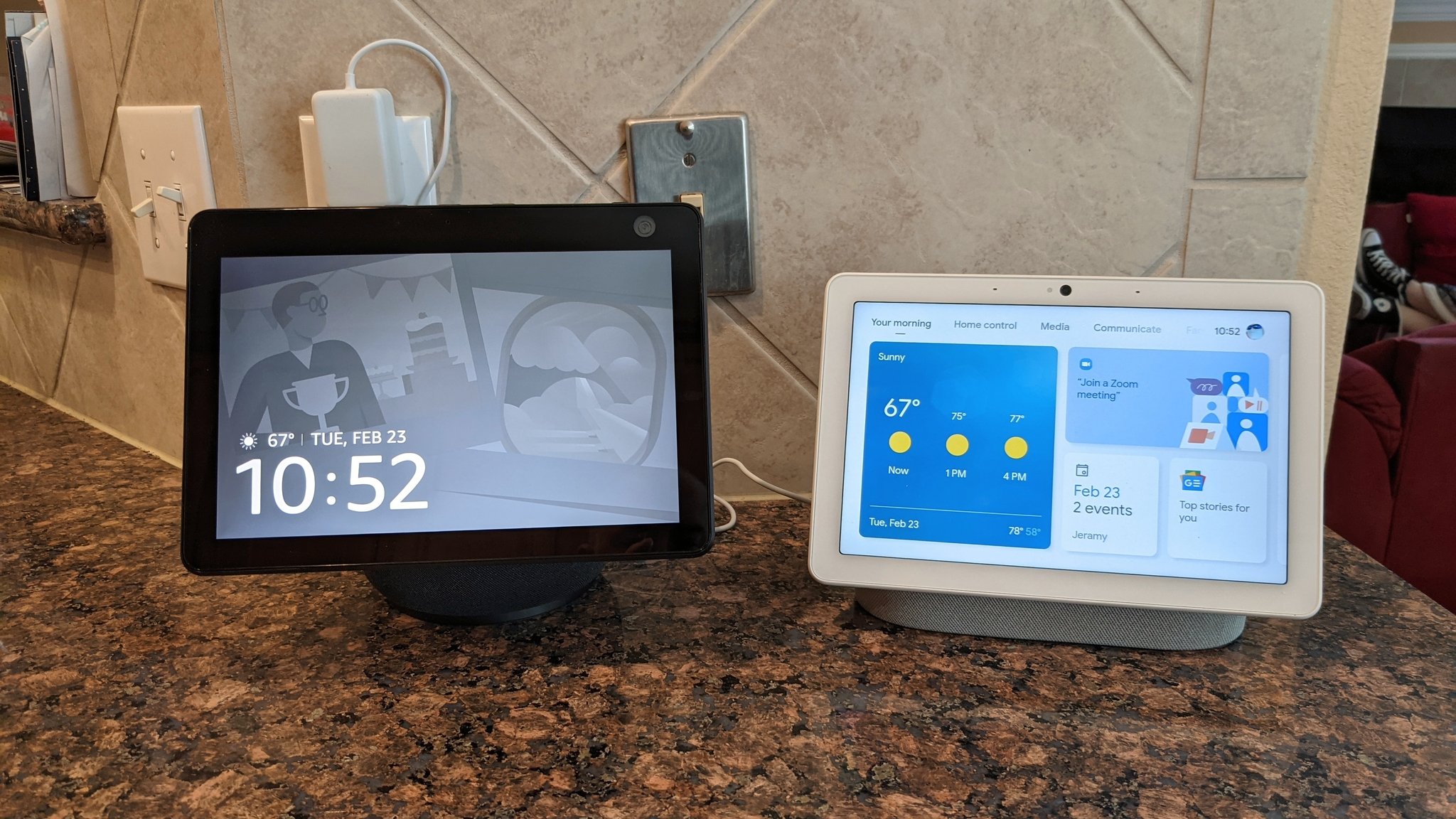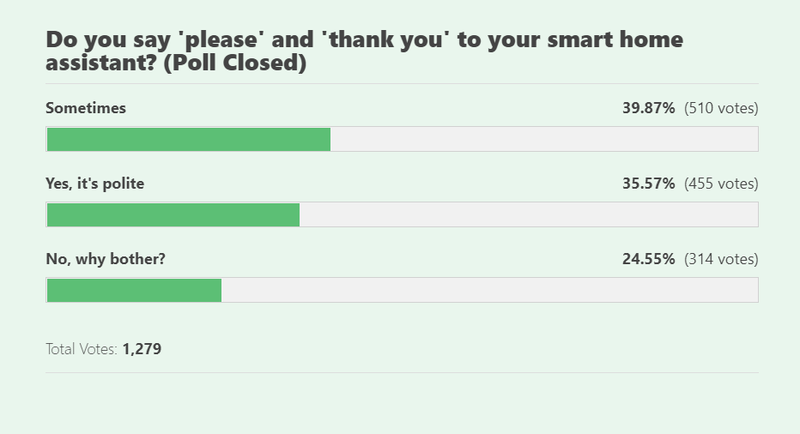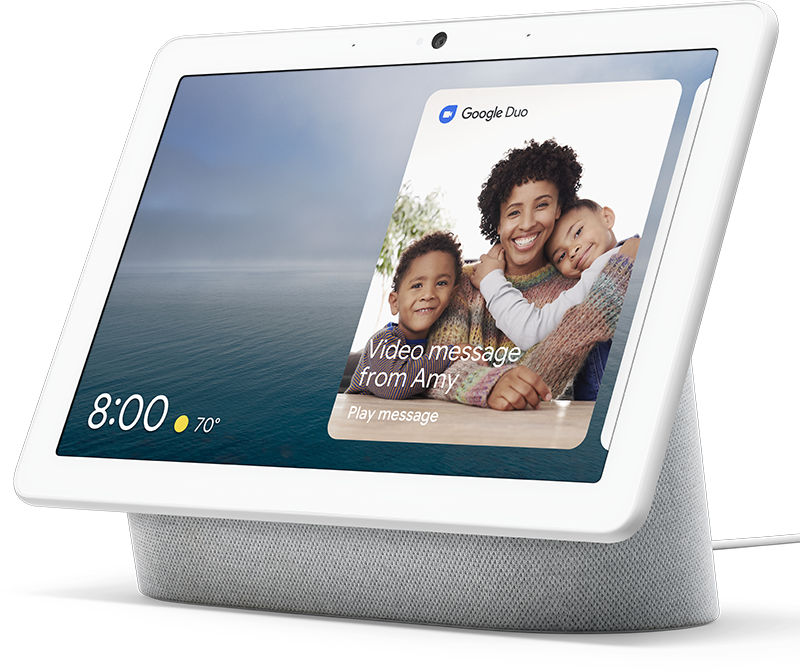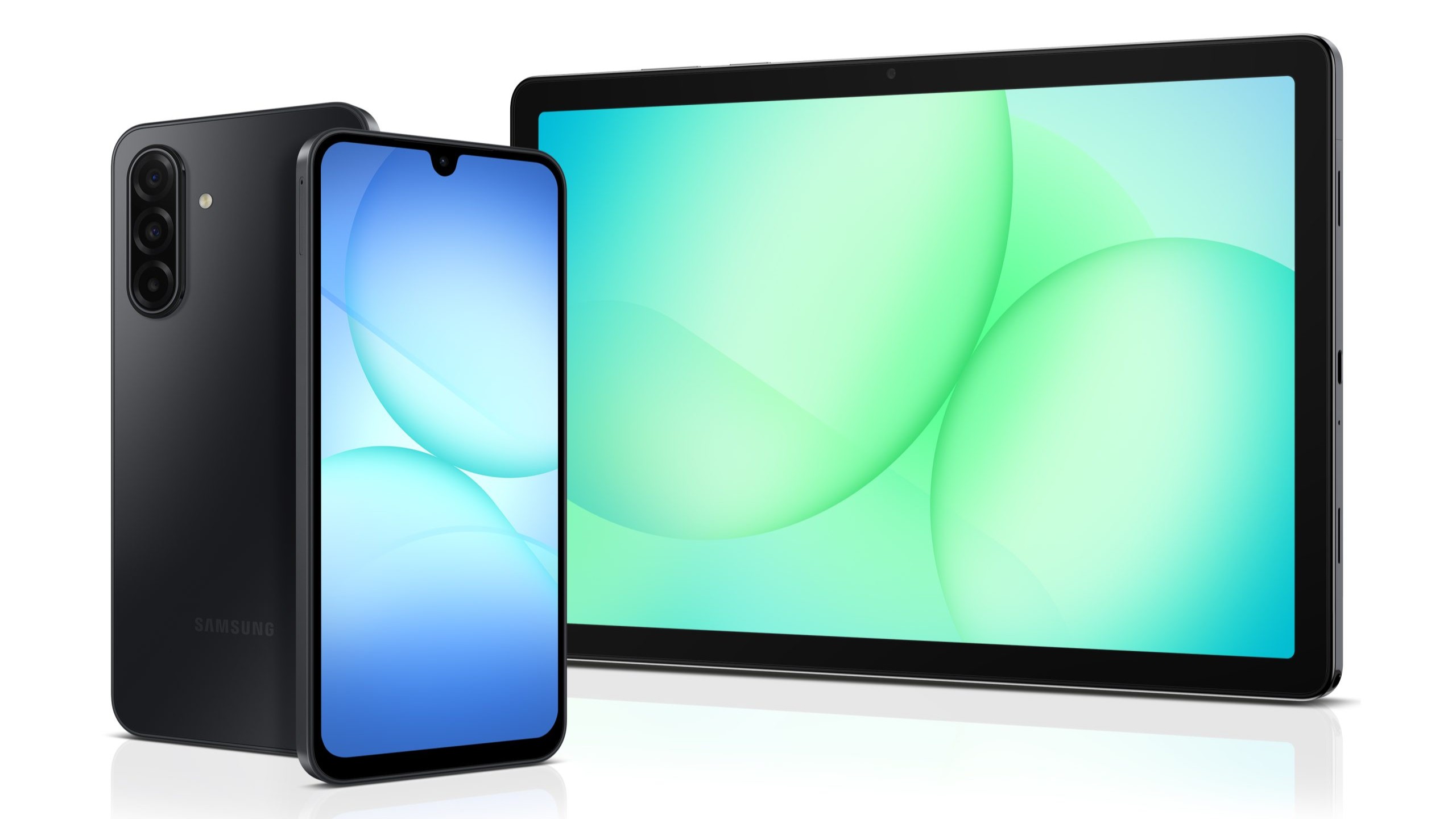Here's what our readers think about being polite to smart home assistants

What you need to know
- More of our readers say "please" and "thank you" to smart home assistants than not.
- Users tend to say "thank you" more than "please" when asking to perform tasks.
- Roughly a quarter of responses think it's unnecessary to be polite with smart home assistants.
We know that most of our readers use smart home products around the house, so over the weekend, we asked whether or not our readers say "please" and "thank you" to their smart home assistants like Amazon Alexa and Google Assistant. We wanted to know if our readers thought it was important to practice good manners with some of the best smart speakers and displays since they make our lives just a bit easier.
Out of more than 1200 responses, it seems our readers are more polite than not, with 35% and nearly 40% voting yes and sometimes, respectively. Only 24% voted no.

Some users have commented that saying "please" and "thank you" to devices like the Nest Hub Max is pointless and akin to extending the same pleasantries to random appliances like dishwashers. However, one commenter, Emily Hamilton, disagrees and thinks it's good practice:
I always say please and thank you so that I don't get out of practice with real people just in case. I see people here saying do you thank your dishwasher do you thank an elevator? No, but I don't talk to them and command them and ask for things so there is a difference. So absolutely say please and thank you and I always have.
Some users comment that they usually only say "thank you" to their assistants, while others confess that it's only to get on their good side:

Some Android Central staff also practice being polite to their assistants, even if there's no obvious benefit to doing so other than getting a cute response back. It is also good practice for yourself and a good influence for your kids if you have them.
Get the latest news from Android Central, your trusted companion in the world of Android

Derrek is the managing editor of Android Central, helping to guide the site's editorial content and direction to reach and resonate with readers, old and new, who are just as passionate about tech as we are. He's been obsessed with mobile technology since he was 12, when he discovered the Nokia N90, and his love of flip phones and new form factors continues to this day. As a fitness enthusiast, he has always been curious about the intersection of tech and fitness. When he's not working, he's probably working out.

